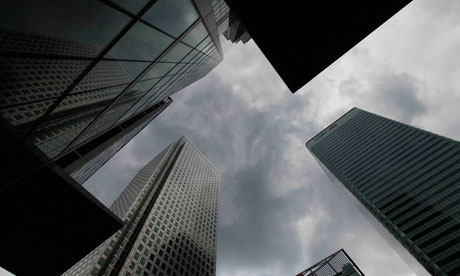
08 Aug 2010 00:16:48
What function have got publishers? What should they do? "Why don't publishers," asks Harry Bingham in this purportedly timely eulogy to capitalism, "just tiptoe silently from their office, leaving a list of useful phone numbers taped to the front door?" for Bingham it is not a problem to answer that question. He's a reformed banker who now runs the Writers' Workshop, a consultancy for first-time authors. "The core of what any publisher does," he argues, is to add value to the package, "the part that has to do with helping stories 'move from places of surplus to places of need'."
The capitalism secret is: all scumbags piggybacking have got another hard work (publishers, mobile phone resellers, fund managers, travel agents without planes, logistics specialists who own no trucks, book reviewers) and traders fundamental should rise in national income because Bingham is one of few people who makes a country's citizens happier. “Today, for instance, I'm moving my opinions from a place of surplus to a place of need. I'm no respite nurse, drug counsellor nor binman but I am, in my own little way, adding to gross national income and thus gross national happiness. You might be forgiven for thinking otherwise.”
Now we are living in a time when we have got an opportunity to make arguments as we are poised for public service cuts that will make many people redundant who do stuff that evidently matters to human wellbeing. All those scumbag traders of the previous paragraph are making markets more extensive and efficient, Bingham bracingly argues. And efficient markets shouldn't be derided: they're what stop us starving. In medieval England so-called badgers (proto-junk bond traders in doublet and hose) resold grain around the country, taking it to places of need, stabilising prices and often unintentionally thwarting famines that raged on the continent. Today hedge fund traders are making your lives and mine happier, albeit in non-apparent ways.
Once upon a time Reagan said, and then Bingham endorses: "The nine most terrifying words in the English language are: 'I'm from the government and I'm here to help'." In this book government only crops up to be derided for turning a blind eye to what it shouldn't have been overseeing in the first place. For someone who thinks the NHS is a nobler human innovation than anything that Bingham champions in this book, that's hard to take.
The capitalism secret is: all scumbags piggybacking have got another hard work (publishers, mobile phone resellers, fund managers, travel agents without planes, logistics specialists who own no trucks, book reviewers) and traders fundamental should rise in national income because Bingham is one of few people who makes a country's citizens happier. “Today, for instance, I'm moving my opinions from a place of surplus to a place of need. I'm no respite nurse, drug counsellor nor binman but I am, in my own little way, adding to gross national income and thus gross national happiness. You might be forgiven for thinking otherwise.”
Now we are living in a time when we have got an opportunity to make arguments as we are poised for public service cuts that will make many people redundant who do stuff that evidently matters to human wellbeing. All those scumbag traders of the previous paragraph are making markets more extensive and efficient, Bingham bracingly argues. And efficient markets shouldn't be derided: they're what stop us starving. In medieval England so-called badgers (proto-junk bond traders in doublet and hose) resold grain around the country, taking it to places of need, stabilising prices and often unintentionally thwarting famines that raged on the continent. Today hedge fund traders are making your lives and mine happier, albeit in non-apparent ways.
Once upon a time Reagan said, and then Bingham endorses: "The nine most terrifying words in the English language are: 'I'm from the government and I'm here to help'." In this book government only crops up to be derided for turning a blind eye to what it shouldn't have been overseeing in the first place. For someone who thinks the NHS is a nobler human innovation than anything that Bingham champions in this book, that's hard to take.

